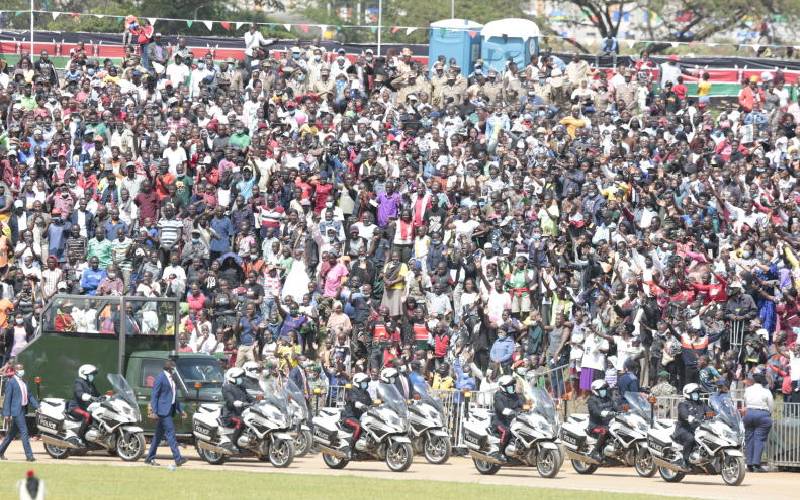
On the eve of the Madaraka Day celebrations, a sponsored Facebook ad zoomed on my page. The title was ‘Humanitarian Environment’ and the sponsor was listed as Evelyn Kimathi, and signed below in caps ‘The Dedan Kimathi Foundation’. The content was a beautiful prayer in form of a song to ‘Mwene Nyaga’. The background was what appeared be the celebrations of our independence.
It has images of dreadlocked men being ushered to a podium I suppose to greet the founding president. The crowd would raise their hands in unison as other well-known public officials of the era freely interacted with the masses. The song is in the Gikuyu language, but the message, splendid under the sweet voice behind it is unmistakable even for the non-Bantu speakers.